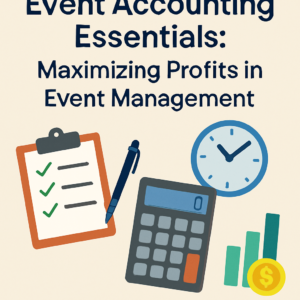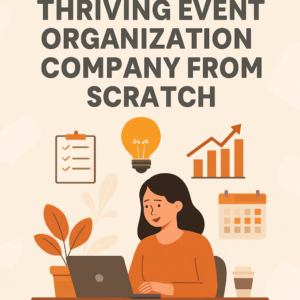Before you begin hiring minors, here are the five things you should know to help understand your employer responsibilities.
1. The Fair Labor Standards Act
Employers who want to hire minors need to understand the Fair Labor Standards Act (FLSA). (1) The FLSA creates strict standards for minor employment, including:
- Ages allowed for employment
- Industries permitted
- Workable times and hours
- Safety requirements
You should know about and post the FLSA Minimum Wage Poster (2) where all employees can see it. The poster lists the minimum age requirements. The Department of Labor (DOL) enforces federal laws for minor employment as determined by the FLSA. But states can create and enforce stricter minor labor laws. Check with your state for specific laws.
2. Hazardous Jobs
The FLSA creates laws meant to protect minor employees, especially those declared hazardous (3) by the Secretary of Labor. Generally, minors cannot work hazardous jobs, including:
- Mining
- Demolitioning
- Roofing
- Operating a motor vehicle
- Manufacturing brick, tile and related materials
- Trenching Using power-driven machinery or tools*
- *Power-driven machinery or tools is a broad category that includes bakery machinery, balers, chainsaws, etc. Check the DOL’s resources for more information.
3. Ages for Employment
Consider the age of the minor you are considering hiring. Why? The minor’s age determines what work the minor employee can perform. Per the FLSA, children can work in agricultural and non-agricultural positions, but their age determines what work they can and cannot do.
Examples of jobs children can do include:
Under age 14:
- Delivering newspapers
- Acting or performing
- Babysitting
- Working for their parents’ business
- Non-hazardous farm work
Ages 14 or 15:
- Working in retail
- Tutoring
- Dishwashing
- Stocking items
- Doing yard work that does not use power-driven machinery
Ages 16 or 17:
- Any non-agricultural job not declared hazardous by the Secretary of Labor
- Any agricultural job regardless of hazard
If you employ a minor child in a non-agricultural job and the child is under age 14, the work cannot be part of the FLSA’s 17 hazardous occupations (4).
Agricultural jobs allow children under the age of 12 to work only if the work is on a small farm that is exempt from federal minimum wage provisions. In addition, the work must be nonhazardous.
4. Hours Minors can Work
As summer dwindles into autumn, minors return to school. With school in session, the hours children can work are restricted. The age of the employee also determines when and how long you can allow the employee to work. The FLSA laws state that minors 15 years old and younger can only work outside of school hours when school is in session. And, the FLSA caps the hours minors can work when school is not in session.
If the child you employ is 15 years and younger they can only work:
- A maximum of three hours per school day, including Fridays
- Up to 18 hours per week when school is in session
- A maximum of 40 hours per week when school is not in session (up to eight hours per day)
- Between 7 a.m. and 7 p.m. when school is in session (between 7 a.m. and 9 p.m. from June 1 through Labor Day)
If you are looking to hire a minor who is 16 or 17 years old, the child can work unlimited hours per FLSA regulations (5). But, your state may have more restrictive laws. Check your state’s rules as you must follow the more protective laws.
5. Wages for minor employees
On top of federal and state minimum wage laws (6) for adult employees, you need to know the legal wages for minor employees. According to FLSA guidelines, you must pay at least federal minimum wage. But, states or localities may have a higher minimum wage. In states or localities with a higher minimum wage, you must pay minor employees the higher of the two wages. You must also be aware of the FLSA youth minimum wage, too.
The youth minimum wage is $4.25 per hour for the first 90 continuous calendar days of employment. You can choose to pay minors $4.25 per hour rather than the federal, state, or local minimum wage. And, the youth minimum wage expires after 90 calendar days. After 90 days, you must pay at least the federal minimum wage. The 90 calendar days are consecutive. If a minor employee leaves before the 90 calendar days expire but returns to work after what would have been their 90th day of employment, you cannot reset the 90 days. Instead, you must pay the minimum wage. Some states may have a youth minimum wage lower than the federal youth minimum. However, you must pay the higher of the two.
Do you live in a state that does not allow a youth minimum wage? You must pay either the federal, state or local minimum wage, whichever is highest. You must abide by state or local laws regarding how frequently you must pay all employees.
But, How Should You Pay Minors?
You can pay employees in a variety of ways as long as the total rate equals at least the minimum wage, including:
- Hourly
- Salary
- Date rate
- Piece rate (8)
- A combination of rates
As with all employees, make sure to collect all necessary new hire paperwork (9), such as Form W-4, a state W-4 form, Form I-9, etc.
The FLSA does not require minor work permits, but some states do. Check with the state to see if the minor employee needs a work permit. If the state requires a work permit, failing to obtain one could result in fines or penalties.









